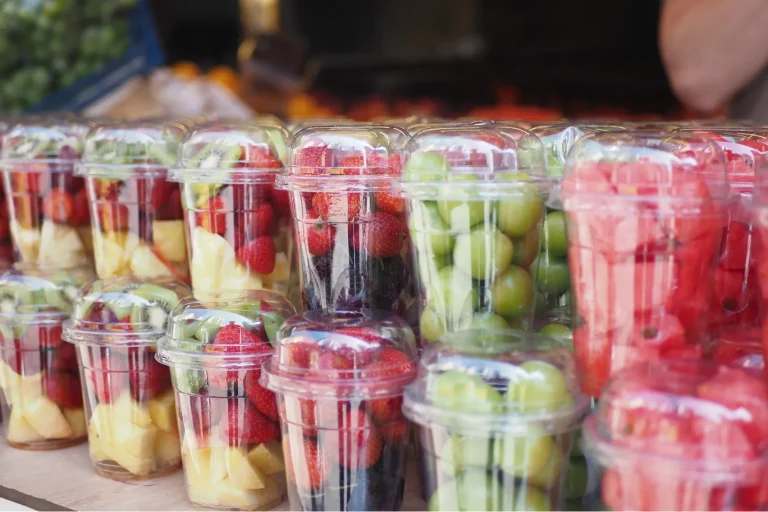PLASTIC
We test, document and advise to ensure your products comply with applicable legal requirements.

It is crucial that materials are safe to use in contact with food. At FCMtesting ApS, based in Odder south of Aarhus, we help you ensure that your materials meet applicable EU regulations and international standards, so you can safely bring your products to market.
Plastics in food contact must comply with EU Regulation (EU) No. 10/2011, also known as The Plastics Regulation. This legislation sets specific requirements for plastic materials and articles intended to come into contact with food, including limits for the migration of chemical substances.
In practice, many plastic materials today are not “pure” types of plastic. Plastics are often combined with fillers, pigments, recycled material or organic components to achieve special properties or a more sustainable expression. Such combinations can affect migration behavior and documentation requirements and therefore require a specific assessment in relation to applicable legislation.
See example of assessment, testing and documentation of coffee cups made of plastic combined with coffee grounds.
At FCMtesting we offer:
- Migration Test to ensure that your product does not release harmful substances beyond the permitted limits.
- Declaration of Compliance in accordance with EU regulations, so your documentation is legally compliant.
- Consultancy on applicable legal and documentation requirements, ensuring full compliance.
For products exported outside the EU, additional requirements may apply, which we can also help you navigate.
FIND MORE INFORMATION ABOUT PLASTIC PRODUCTS
What types of materials are there?
Plastic types used for food contact
The following types of plastic are often used in materials and articles for food contact:
- PE – Polyethylene
- PP – Polypropylene
- PET – Polyethylene terephthalate
- PVC – Polyvinyl chloride
- PS – Polystyrene
- Other types such as EVOH and PA
Legislation and external references
Legislation on plastics for food contact
Tip: Always use the latest legal text. Select "In force" and the latest consolidated version on EUR-Lex.
- Regulation (EC) No. 1935/2004: General requirements for all materials intended for contact with food.
- Regulation (EU) No. 10/2011: Specific rules for plastics and positive list of permitted substances.
- Regulation (EU) 2024/3190: Restrictions on bisphenol A and related substances.
- Regulation (EU) 2022/1616: Requirements for recycled plastic and traceability.
- Regulation (EC) No. 2023/2006: Good manufacturing practice.
FAQ about testing and documentation of plastic
FAQ – Testing and documentation of plastics
- Which types of plastic are approved for food contact?
- EU Regulation 10/2011 includes PP, PE and PET. Only substances on the Union List may be used.
- How are plastics for food contact tested?
- Via migration testing, which measures the transfer of substances to food or simulants. The test is carried out under conditions corresponding to the expected use, and the results are compared with limit values.
- What is a Declaration of Compliance?
- A document confirming that the plastic product complies with EU Regulation 10/2011. See guide to DoC.
- Should recycled plastic be tested differently?
- Yes. According to Regulation (EU) 2022/1616 Recycled plastic must meet special requirements for traceability and testing methods.
- How do you document good manufacturing practices?
- By following Regulation (EU) No. 2023/2006 and ensure hygienic production conditions.
- Are there requirements for labeling of plastics for food contact?
- Yes. Products must be labeled with the text “for food” or a symbol with a fork and a glass.
- Who is responsible for documentation and compliance?
- The manufacturer and importer are responsible for ensuring that plastic materials comply with applicable legislation and that documentation such as Declaration of Compliance (DoC) is available.
